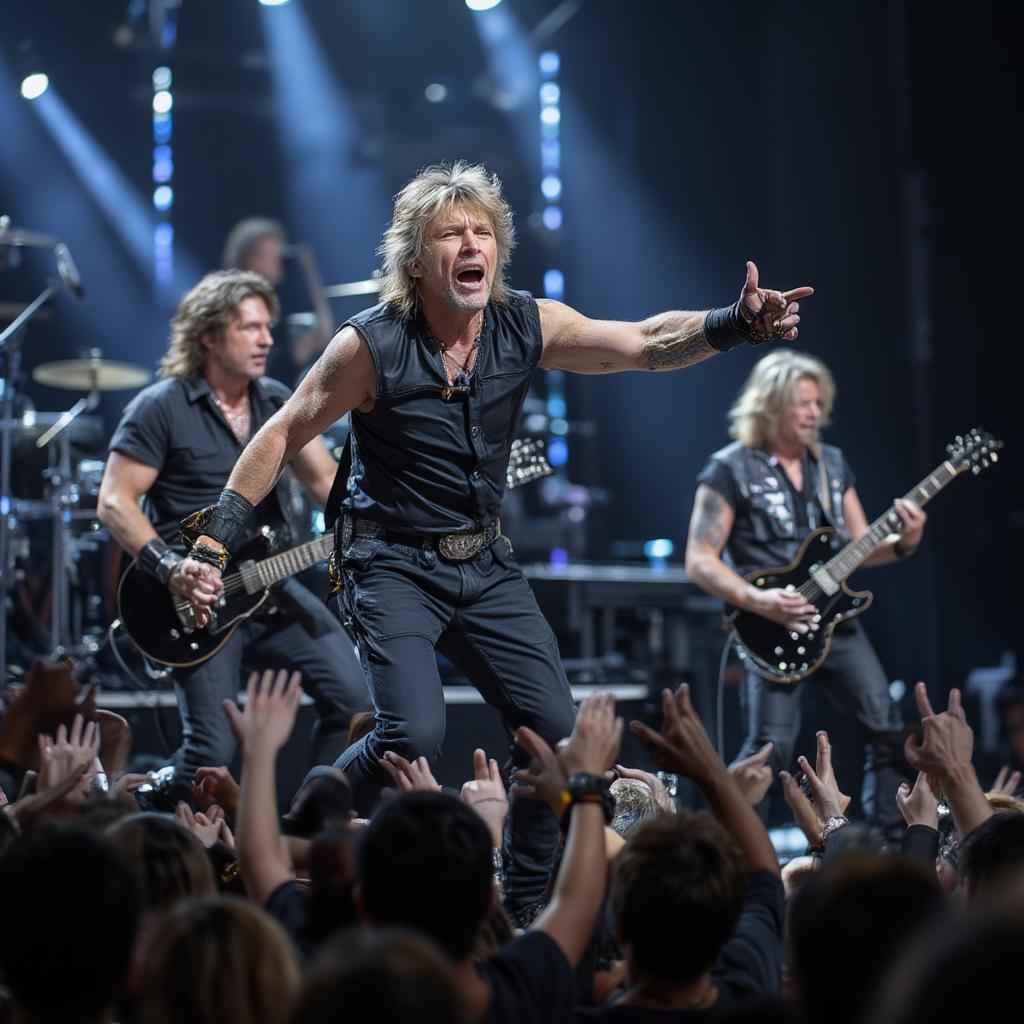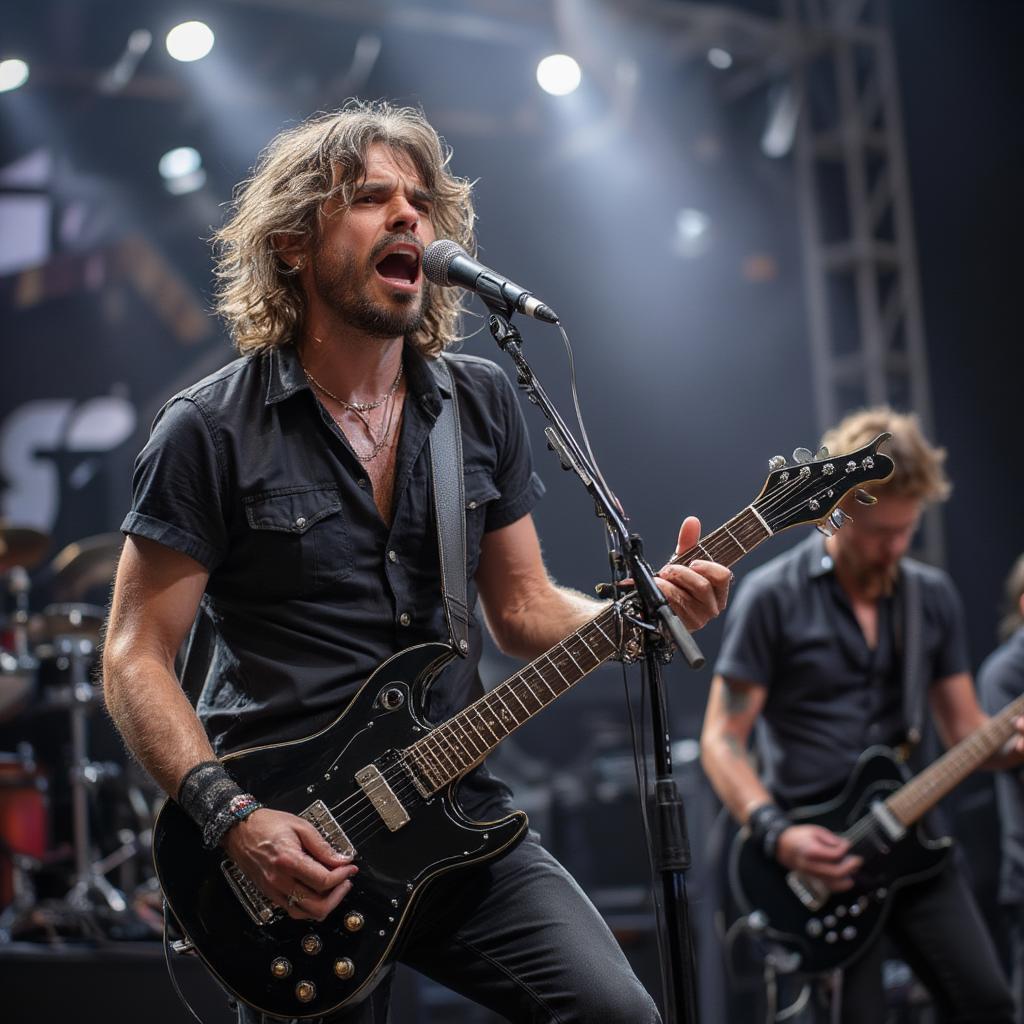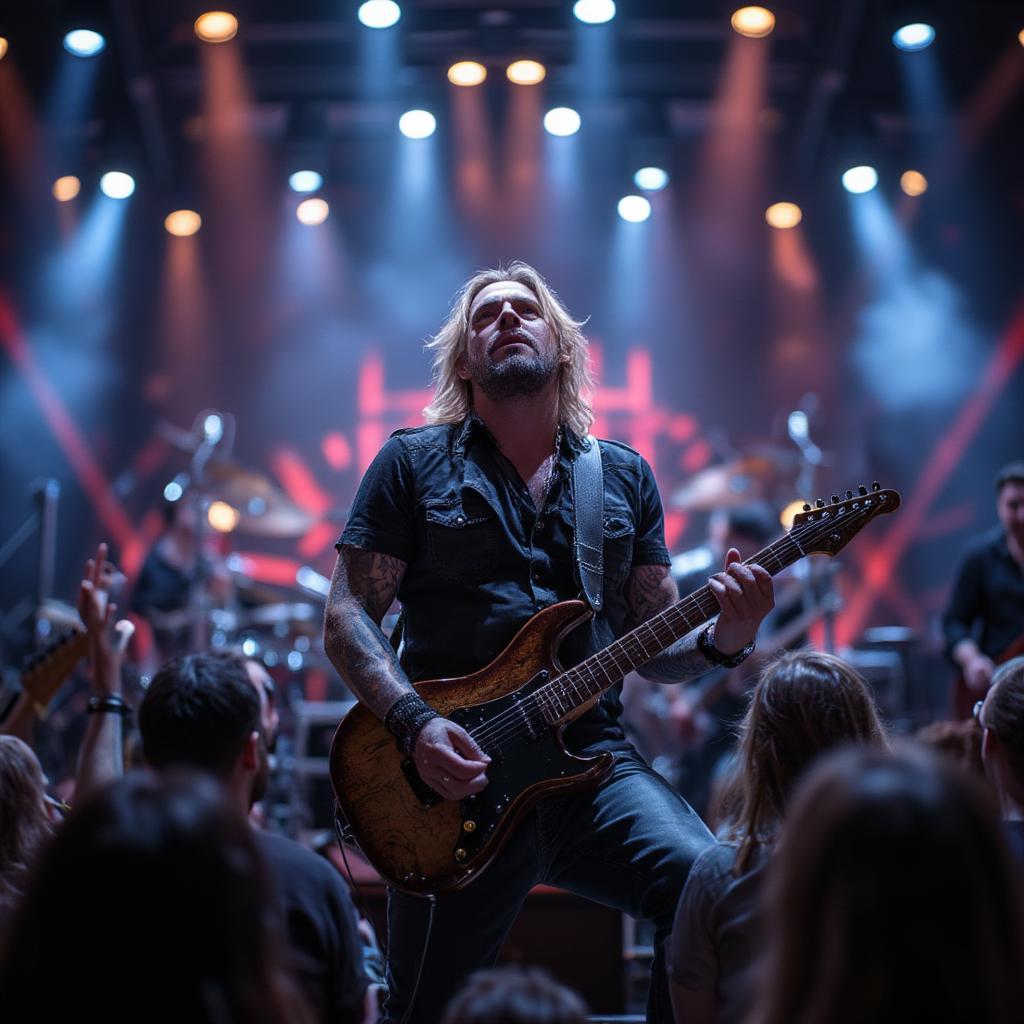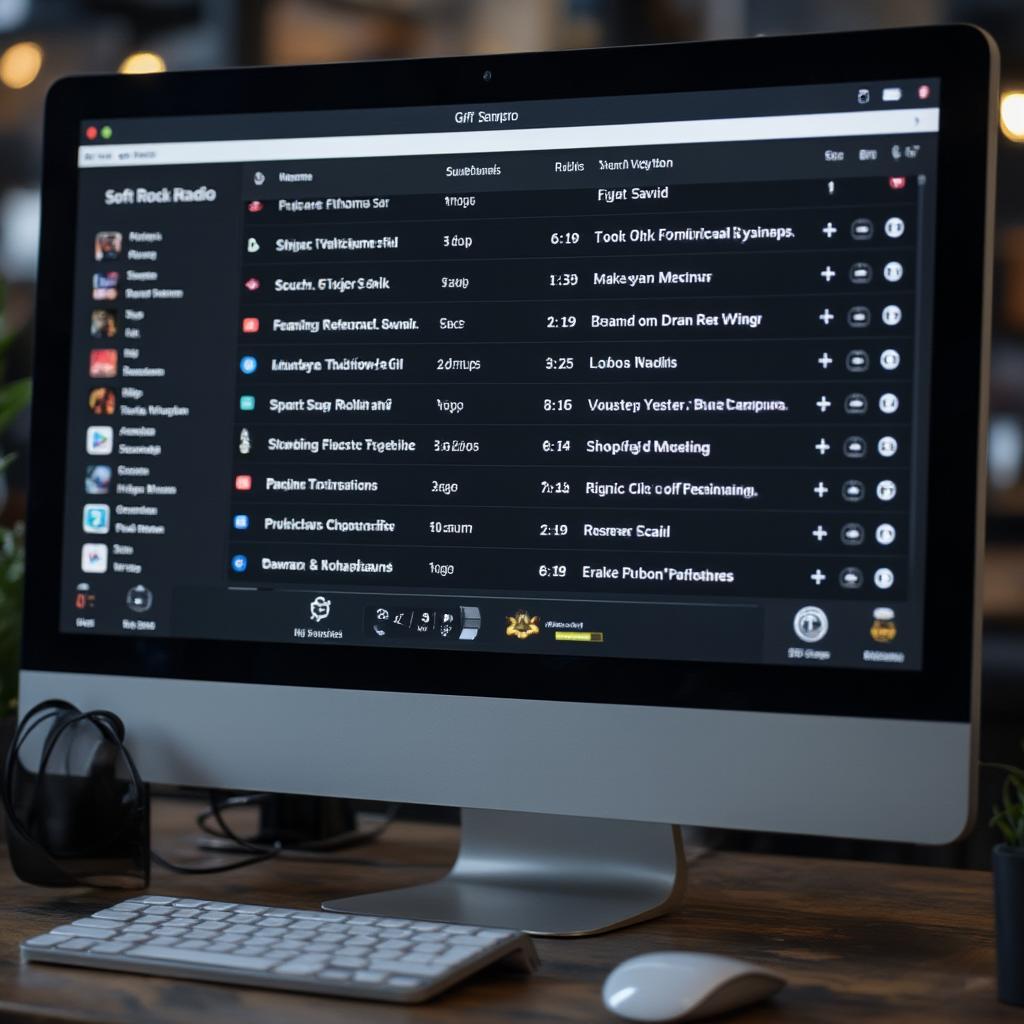Folk Punk: Where Raw Energy Meets Storytelling
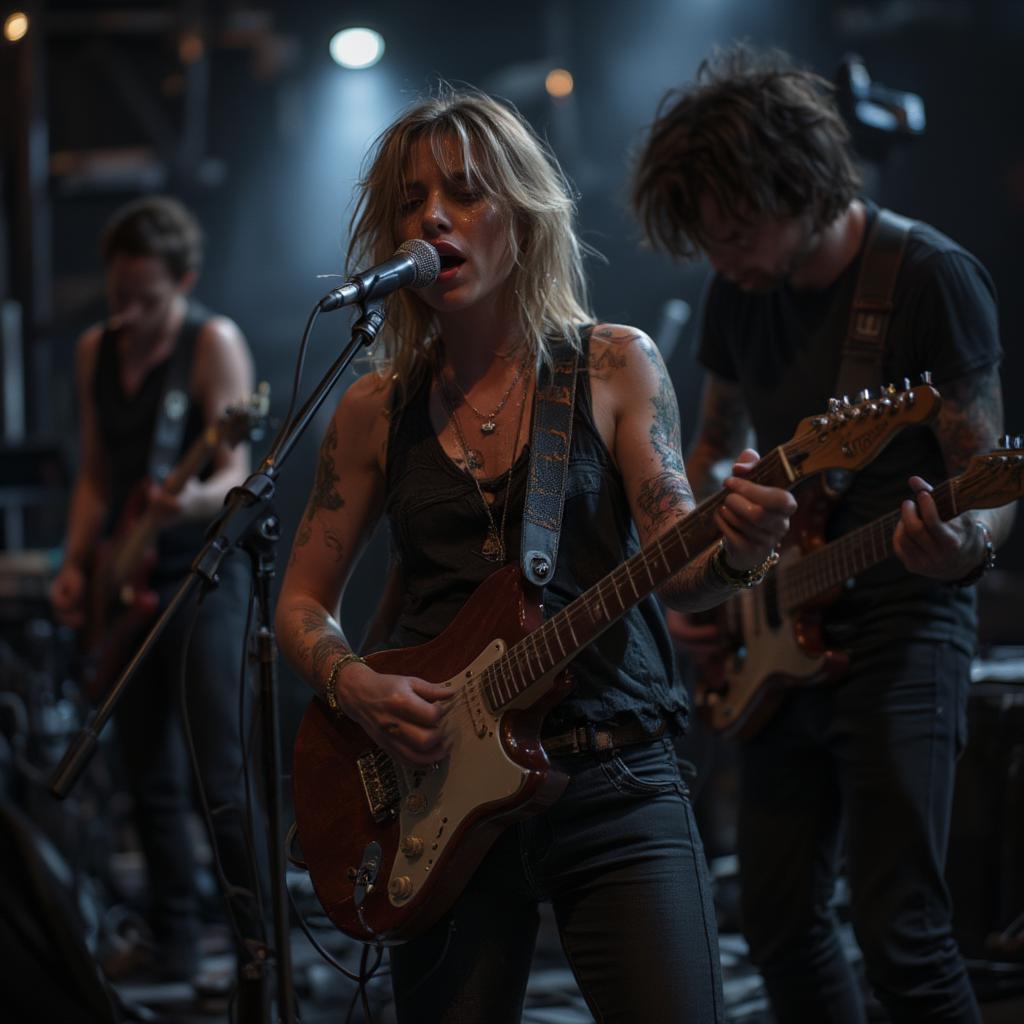
Folk Punk, a genre that marries the raw, rebellious spirit of punk rock with the heartfelt storytelling of folk music, creates a potent and often deeply moving musical experience. This unique fusion has given rise to a vibrant subculture and a catalog of anthems that resonate with those who feel like outsiders, question the status quo, or simply appreciate genuine, unfiltered expression. Let’s dive into what makes folk punk so compelling, why it has found a dedicated following, and how it continues to evolve.
What Exactly is Folk Punk?
At its core, folk punk blends the acoustic instrumentation and narrative focus of folk music with the energetic delivery and anti-establishment themes of punk. Imagine a raucous campfire singalong, but instead of gentle lullabies, it’s packed with social commentary and raw emotion. This isn’t your grandma’s folk music, nor is it your typical three-chord punk blast. It’s something more nuanced and, dare I say, profound.
The Punk Roots
Punk’s DIY ethos is central to folk punk. The genre’s raw and often unpolished sound is not a result of a lack of skill, but a conscious decision to prioritize authenticity over technical perfection. It’s about expressing yourself honestly, flaws and all. Just like punk, folk punk isn’t afraid to address difficult topics head-on. Issues like social inequality, political corruption, and personal struggles are all fair game. The passion and urgency of punk are still present, just channeled through a different instrumentation. one ok rock stand out fit in showcases the kind of raw energy that fuels both punk and folk punk.
The Folk Influence
Folk music brings to the mix a focus on storytelling and narrative. The acoustic guitar becomes a primary tool, often accompanied by other folk instruments like mandolins, banjos, and accordions. But it’s not just about the sound of the instruments; it’s about how they’re used. Folk punk songs often tell stories, whether they’re personal anecdotes or tales of societal struggle. These songs aren’t just designed to make you move, they’re intended to make you think and feel. The influence of traditional folk is clear, but folk punk takes those foundations and adds layers of rebellion and grit.
The Sound of Rebellion: Defining Characteristics of Folk Punk
Folk punk isn’t just a fusion of two genres; it’s a distinct sound with unique characteristics. These characteristics are the reason the genre stands out in the landscape of contemporary music.
- Acoustic Instruments with Attitude: While electric guitars do occasionally make an appearance, the core of folk punk is its acoustic instrumentation. Guitars, banjos, mandolins, and even harmonicas can be found providing the melodies, but they’re not played like your typical folk tunes. There’s a raw edge and a driving force, almost as if the instruments themselves are trying to rebel.
- Lyrical Depth and Social Commentary: Lyrics are the lifeblood of folk punk. Often, they’re politically charged, personal, or both. Whether it’s a critique of the system, a tale of personal hardship, or a celebration of resilience, the words of folk punk are always impactful. They make you think, question, and maybe even want to take action.
- DIY Aesthetic: The DIY ethos of punk carries over to folk punk. Many artists in this genre record and distribute their music independently, further reinforcing the authenticity and rebellious spirit. You are more likely to see a folk punk band performing at a small venue than in a large arena.
- Raw and Unpolished Vocals: Much like punk, folk punk vocals aren’t known for their polished perfection. Instead, the emphasis is on passion and emotional expression. Vocals can range from strained howls to gravelly whispers, conveying the raw emotion of the lyrics.
- Themes of Outsider Status: Folk punk is often the soundtrack for the disenfranchised and the marginalized. Themes of alienation, rebellion, and social injustice are prevalent, making it a powerful vehicle for self-expression and solidarity.
“Folk punk, at its heart, is about telling the truth. Whether that truth is uncomfortable, painful, or inspiring, it’s always honest. It’s not about pleasing everyone, it’s about making a connection.” – Dr. Eleanor Vance, Musicologist at the University of Arts, London

Key Figures and Bands in Folk Punk History
While folk punk might not be as mainstream as some other genres, it has had several key bands and figures who have helped define and shape it.
The Pioneers
- The Pogues: Arguably one of the most influential bands in folk punk, The Pogues combined traditional Irish folk music with punk’s energy and attitude. Their raw, unapologetic approach to music and storytelling paved the way for many other artists.
- Violent Femmes: While they might not identify exclusively as folk punk, Violent Femmes’ stripped-down, acoustic punk sound was incredibly influential. Their raw energy and introspective lyrics helped to lay the groundwork for the genre.
Modern Voices
- Against Me!: Initially a folk-punk band, Against Me! have incorporated more traditional punk rock influences into their sound but their roots are firmly in the folk-punk movement. Their early albums serve as textbook examples of the genre.
- The Front Bottoms: This band blends the confessional songwriting style of folk with the raw energy of punk. Their relatable lyrics and distinctive sound have garnered a devoted following.
- Days N Daze: Known for their fast-paced, chaotic performances, Days N Daze are a prime example of the more energetic and rambunctious side of folk punk. They demonstrate how punk speed and attitude can easily merge with the sound of the banjo or mandolin.
Other Notable Mentions
- AJJ (formerly Andrew Jackson Jihad)
- The Taxpayers
- Pat the Bunny
- Blackbird Raum
Why Folk Punk Resonates: The Appeal
Folk punk’s appeal lies in its authenticity and its ability to connect with listeners on a deeply emotional level. It’s music that doesn’t hide behind polished production and predictable themes. Instead, it puts its heart on its sleeve.
Connection Through Authenticity
In a world full of manufactured pop, folk punk stands out for its genuine, raw expression. It doesn’t try to be anything it’s not. Its imperfections are part of its charm, and this honesty connects with listeners who appreciate realness and authenticity. The unpolished sound and genuine emotions are a welcome change from the often-overproduced music of other genres.
Community and Inclusivity
The folk punk scene is often very welcoming and inclusive. Its DIY roots have led to a community of like-minded individuals who support one another. This sense of community is one of the most appealing things for many fans. It is a space where people who feel like outsiders can find a home.
A Soundtrack for Social Change
Many folk punk songs are a call to action, a demand for change, or a voice for the voiceless. This social consciousness is a huge part of its appeal. Folk punk gives a voice to those who feel overlooked and disenfranchised. It’s a way to express frustration, offer hope, and incite change. The genre often serves as a soundtrack for social justice, calling for a better world. For those who are looking to understand the frustration and anger that surrounds them, looking into folk punk can be a great place to start. best punk bands can give you more insight into the larger punk scene that also drives the folk punk genre.
“What makes folk punk special is its ability to be both personal and political at the same time. It takes your own individual experience and places it within the bigger picture of society, making you feel less alone in your struggles.” – Professor Johnathan Reed, Cultural Studies at New York University
The Evolution of Folk Punk: Where Is It Headed?
Like all genres, folk punk is constantly evolving. While its core tenets remain intact, new artists and influences are always reshaping its sound and style.
Blending of Genres
One notable trend is the blending of folk punk with other genres. We’re seeing artists incorporate elements of indie rock, hardcore, and even experimental music into their sound. This shows that the genre isn’t afraid to break free from its traditional boundaries. Such a blend is something that punk rock bands also attempt but folk punk does it with an acoustic focus.
Increased Accessibility
With the rise of digital music and streaming services, folk punk is becoming more accessible than ever. This increased exposure can bring the genre to new audiences and fuel its continued growth. It’s an exciting time to be a fan of the genre.
A Continued Voice for the Marginalized
Despite the changes and shifts in music, folk punk will continue to serve as a voice for the marginalized. The themes of social justice, personal struggle, and resilience are always relevant. The genre’s ability to speak to these experiences makes it more important today than ever.
Conclusion: The Enduring Power of Folk Punk
Folk punk is more than just a genre; it’s a movement, a community, and a voice for those who feel unheard. It’s the perfect combination of raw energy and heartfelt storytelling, making it a powerful and enduring force in the world of music. As it continues to evolve, the core principles of authenticity, rebellion, and community will remain at its heart. The genre continues to resonate with listeners around the world, and we can expect it to continue inspiring generations to come. Its unique blend of punk attitude and folk storytelling will ensure its place in music history. Whether you’re a long-time fan or new to the genre, now’s the perfect time to dive into the world of folk punk.
Frequently Asked Questions (FAQ)
-
What is the main difference between folk and folk punk?
Folk music traditionally focuses on storytelling using acoustic instruments and often has a more mellow, reflective tone. Folk punk incorporates the energy and rebellion of punk, often with faster tempos, louder vocals, and more politically charged lyrics, while retaining acoustic instrumentation.
-
Is folk punk similar to acoustic punk?
Yes, the terms are often used interchangeably, and there is considerable overlap. However, folk punk tends to emphasize the storytelling and folk music influences more, often incorporating traditional folk instruments. Acoustic punk is a broader term that can include stripped-down punk songs without necessarily featuring folk influences.
-
What instruments are commonly used in folk punk?
The most common instruments include acoustic guitar, banjo, mandolin, upright bass, harmonica, and various percussion instruments. Sometimes, you might see an accordion, washboard, or even a violin. The focus is often on acoustic or minimally amplified instruments.
-
What are some of the recurring lyrical themes in folk punk?
Lyrical themes often include social commentary, political critique, personal struggles, mental health, alienation, anti-establishment viewpoints, and stories of resilience and rebellion. Authenticity and honesty are central to folk punk’s lyrical content.
-
Is folk punk considered an underground genre?
While it has gained more recognition in recent years, folk punk remains largely underground compared to mainstream genres. This makes it a niche genre with a passionate fan base, often found in smaller venues and DIY scenes. The nature of the genre leans into staying underground, away from the mainstream.
-
How does folk punk embody the DIY (Do It Yourself) ethos?
Folk punk fully embraces the DIY ethos. Many bands produce their music independently, organize their own tours, and create their own merchandise. This hands-on approach allows for maximum creative freedom and a deeper connection with their audience.
-
Are there any festivals dedicated to folk punk music?
Yes, while there aren’t many large, mainstream festivals specifically for folk punk, you can find plenty of smaller, regional festivals and events that feature folk-punk artists. These events are often integral to the close-knit community of the genre.

